
Rundu: Gateway to the Kavango Wilderness
Rundu, located in the northeastern part of Namibia, is a city that thrives on its rich culture and natural beauty. Situated on the banks of the Kavango River, it serves as a gateway to the lush landscapes and diverse wildlife of the Kavango region. The city is a vibrant mix of traditional and modern influences, offering a unique experience for travelers. One of the highlights of visiting Rundu is exploring the local markets, where you can find handmade crafts, vibrant textiles, and fresh produce. The friendly locals are always eager to share their stories and traditions, making it a great place to learn about the Kavango culture. Don't miss the chance to try traditional dishes, which are a delightful blend of flavors and ingredients unique to this region. Nature enthusiasts will be captivated by the scenic beauty surrounding Rundu. The Kavango River provides opportunities for boat trips, fishing, and bird watching. Nearby, you can visit the Rundu Open Market and the Mbunza Living Museum to gain deeper insights into the local way of life. For those interested in wildlife, the nearby Mahango Game Reserve is home to a variety of animals, including elephants, hippos, and a myriad of bird species.
Local tips in Rundu
- Visit the local markets early in the morning for the freshest produce and best selection of handmade crafts.
- Take a boat trip on the Kavango River for a chance to see hippos, crocodiles, and a variety of bird species.
- Explore the Mbunza Living Museum for an immersive experience of Kavango culture and traditions.
- Carry cash, as many local vendors may not accept credit cards.
- Bring binoculars for bird watching, especially at the Mahango Game Reserve.
Rundu: Gateway to the Kavango Wilderness
Rundu, located in the northeastern part of Namibia, is a city that thrives on its rich culture and natural beauty. Situated on the banks of the Kavango River, it serves as a gateway to the lush landscapes and diverse wildlife of the Kavango region. The city is a vibrant mix of traditional and modern influences, offering a unique experience for travelers. One of the highlights of visiting Rundu is exploring the local markets, where you can find handmade crafts, vibrant textiles, and fresh produce. The friendly locals are always eager to share their stories and traditions, making it a great place to learn about the Kavango culture. Don't miss the chance to try traditional dishes, which are a delightful blend of flavors and ingredients unique to this region. Nature enthusiasts will be captivated by the scenic beauty surrounding Rundu. The Kavango River provides opportunities for boat trips, fishing, and bird watching. Nearby, you can visit the Rundu Open Market and the Mbunza Living Museum to gain deeper insights into the local way of life. For those interested in wildlife, the nearby Mahango Game Reserve is home to a variety of animals, including elephants, hippos, and a myriad of bird species.
When is the best time to go to Rundu?
Iconic landmarks you can’t miss
Kavango River Lodge
Experience tranquility and adventure at Kavango River Lodge, a stunning riverside retreat in Namibia's picturesque Kavango region.
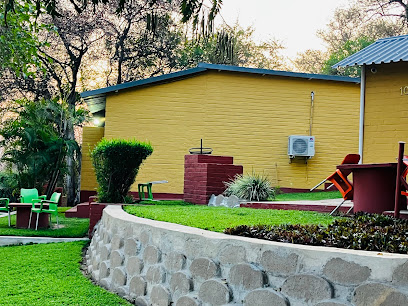
Hakusembe River Lodge, Gondwana Collection Namibia
Experience the beauty of Namibia at Hakusembe River Lodge, where comfort meets nature along the Zambezi River.
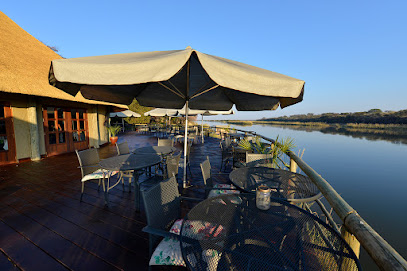
Kaisosi River Lodge
Discover tranquil luxury at Kaisosi River Lodge, a serene escape on the banks of the Zambezi River, offering nature, adventure, and relaxation in Namibia.
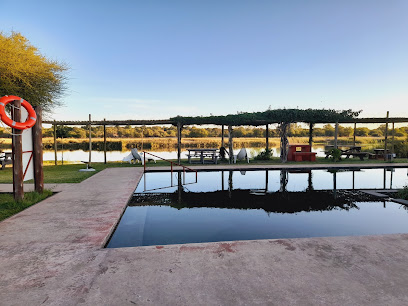
Tambuti Lodge
Discover the serene beauty of Tambuti Lodge in Rundu, Namibia, your perfect retreat for relaxation and adventure in nature.
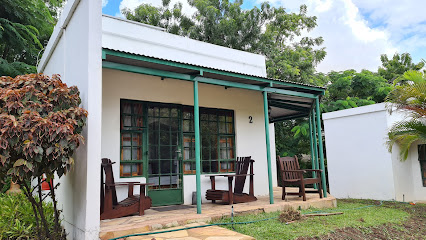
Hotel Ngandu Rundu
Experience the beauty of Namibia at Hotel Ngandu Rundu, where comfort meets nature along the Zambezi River.

New World GAG Pub
Discover the vibrant nightlife and local culture at New World GAG Pub in Rundu, a perfect spot for food, drinks, and entertainment.
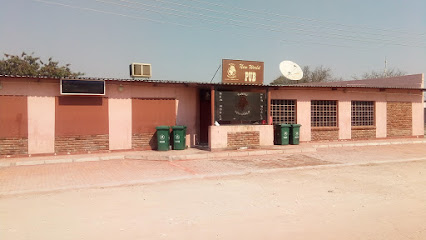
Nkwazi Lodge And Camping Site
Discover the serene beauty of Nkwazi Lodge and Camping Site in Rundu, where nature meets comfort for an unforgettable getaway.
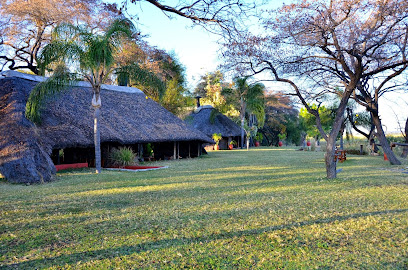
VIP Bar
Discover the vibrant nightlife at VIP Bar in Rundu, a lively spot for drinks and entertainment that embodies the local culture.
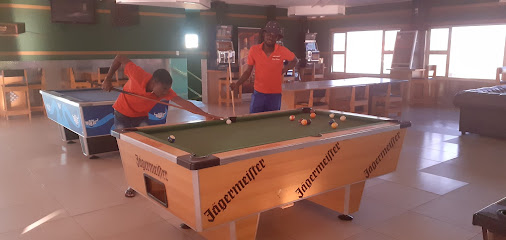
Niilo's Guest House
Discover the charm of Rundu with a stay at Niilo's Guest House, where comfort meets local hospitality in Namibia's Zambezi Region.
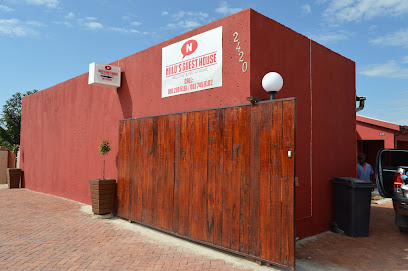
Mukuku Rest Camp
Experience the serenity of Mukuku Rest Camp, a nature retreat offering adventure, relaxation, and a taste of authentic Namibian wilderness.

Samsitu Campsite
Discover the beauty of Owamboland at Samsitu Campsite, where nature and culture come together for an unforgettable camping experience.
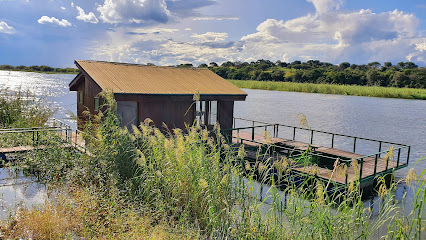
Camp Hogo (Kavango)
Experience the serene beauty and rich culture of Kavango at Camp Hogo, your perfect getaway in Namibia's breathtaking landscapes.

Werah Hub Space
Experience the energy of live music, art, and coffee at Werah Hub Space in Rundu, where creativity and community thrive.
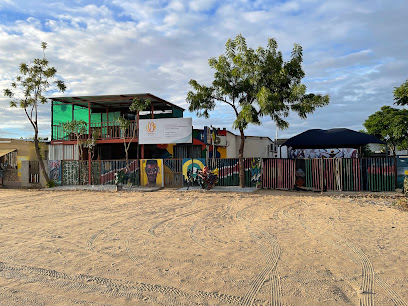
OMashare Hotel
Experience the serene beauty and local charm of Rundu at OMashare Hotel, your perfect lodge retreat in Namibia.
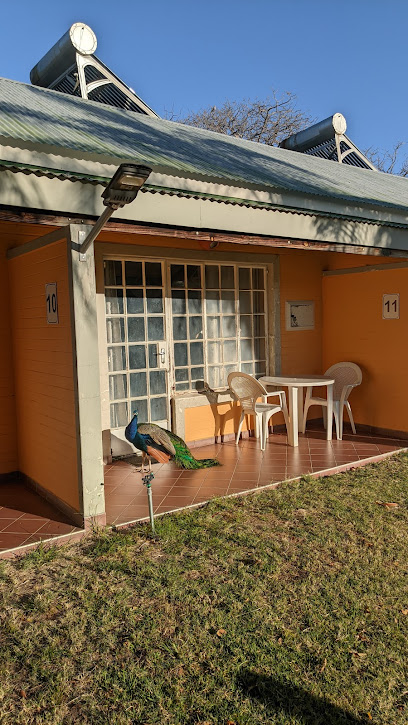
Shoombe frans guesthouse Rundu
Experience warm Namibian hospitality at Shoombe Frans Guesthouse in Rundu, your perfect base for exploring the natural beauty and vibrant culture of the region.
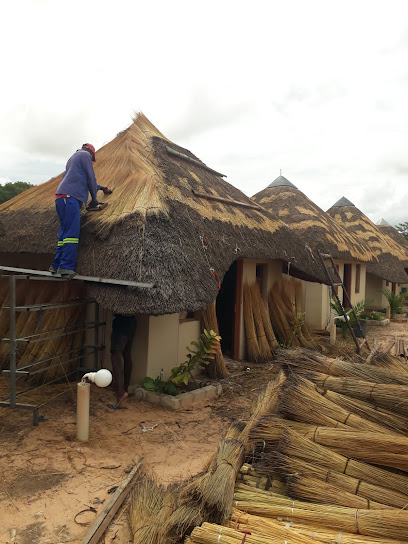
Unmissable attractions to see
Marula Nursery
Explore the lush tranquility of Marula Nursery, a hidden gem in Kavango showcasing the vibrant flora of the region.
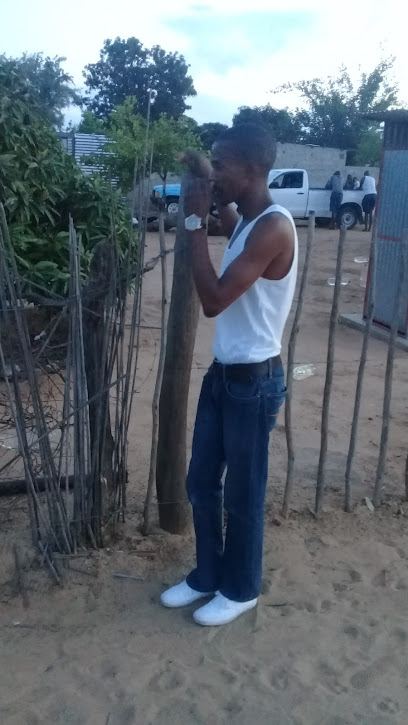
Mbunza Living Museum
Explore the vibrant traditions and heritage of the Mbunza people at the Mbunza Living Museum in Namibia's Zambezi Region.
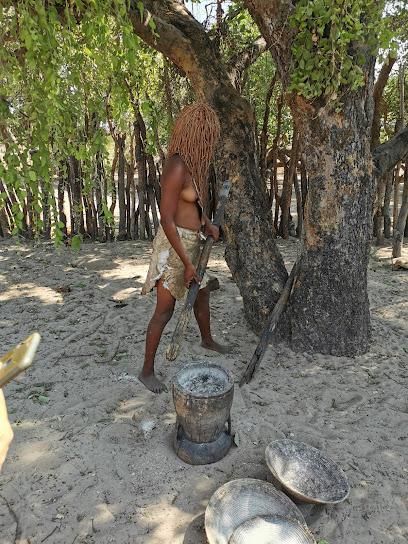
Rundu Beach
Experience the tranquility of Rundu Beach, a hidden gem in Namibia, perfect for relaxation, picnics, and scenic walks along the Zambezi River.
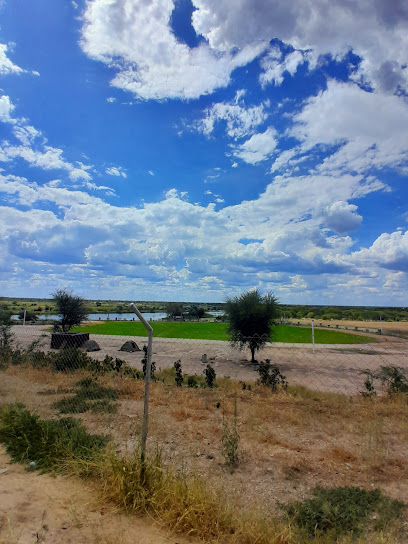
Hacienda park and playground
Discover the serenity and family-friendly fun at Hacienda Park and Playground, a scenic retreat along the Kaisosi River in Rundu, Namibia.
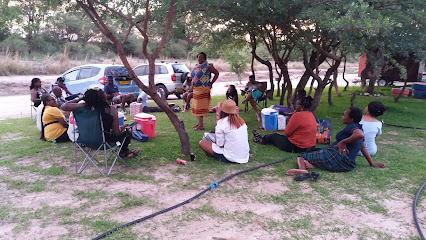
Legend Villa river
Experience the serene beauty of Legend Villa River, a peaceful park in Rundu ideal for relaxation, picnics, and nature exploration.

MBUNI TRAVEL AND TOURS / RIVER TOURS
Explore Rundu's breathtaking landscapes and vibrant culture with Mbuni Travel and Tours, offering unforgettable river tours and authentic local experiences.
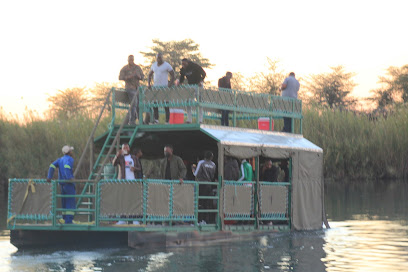
Shinyungwe
Explore Shinyungwe in Rundu, a captivating tourist attraction showcasing Namibia's rich culture, stunning natural beauty, and warm hospitality.
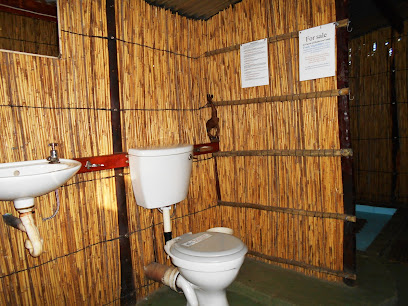
Essential places to dine
KFC Rundu
Discover the delicious flavors of KFC Rundu - your go-to fast food spot in Namibia for quick bites and familiar favorites.
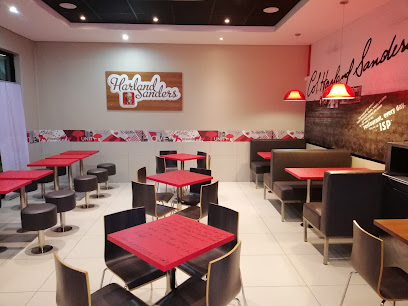
Hungry Lion Rundu Mall
Experience the essence of Rundu's culinary delights at Hungry Lion Rundu Mall – your go-to spot for delicious fried chicken and fast food.
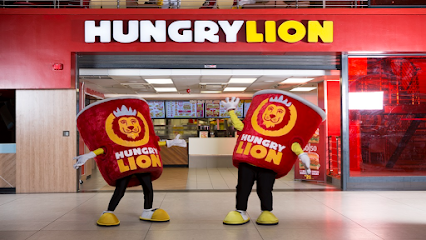
Gino's Bakery Takeaway Restaurant
Savor the best of Rundu at Gino's Bakery Takeaway Restaurant—your destination for delicious baked goods and hearty meals.
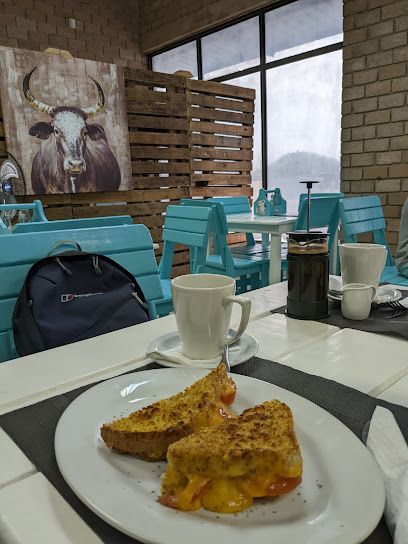
Steers Restaurant
Experience the best of Namibian cuisine at Steers Restaurant in Rundu with mouthwatering grilled dishes and a welcoming atmosphere.
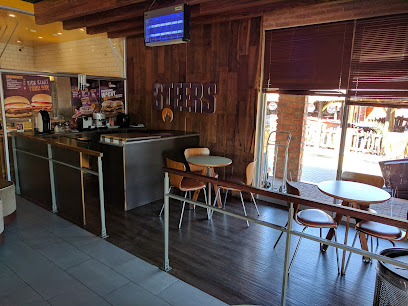
Kalimba Catering Services CC
Experience authentic African flavors at Kalimba Catering Services CC in Rundu - a culinary gem offering delicious traditional dishes at great prices.
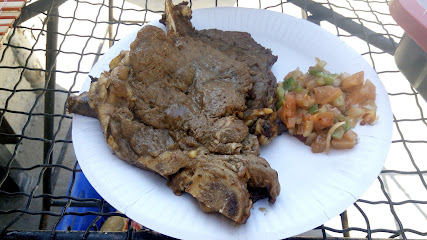
Rocky's
Discover authentic Namibian cuisine at Rocky's in Rundu – where local flavors meet warm hospitality.
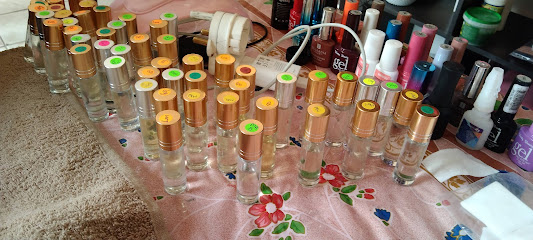
Werah Hub Space
Experience the fusion of culinary delights and artistic expression at Werah Hub Space in Rundu - a vibrant hub for food lovers and creatives alike.
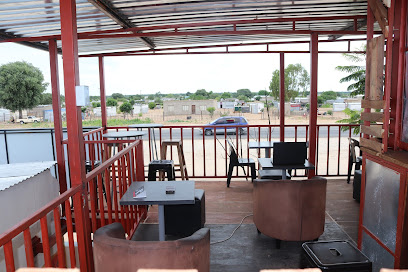
Grill Masters
Discover Grill Masters in Rundu: Where delectable grilled dishes meet an inviting atmosphere for an unforgettable dining experience.
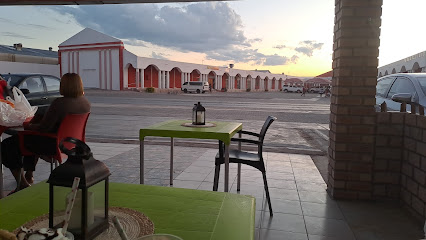
UNKURUNGU GUEST HOUSE
Discover Unkurungu Guest House: A culinary gem in Rundu serving authentic Portuguese cuisine amidst charming Namibian hospitality.
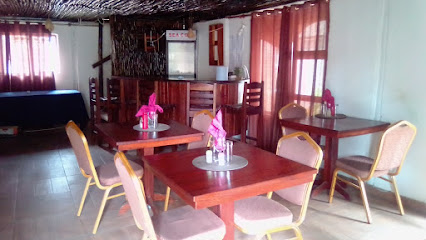
Vicky's Kitchen Accommodation
Experience authentic Namibian hospitality at Vicky's Kitchen Accommodation – where delicious cuisine meets cozy comfort in Rundu.
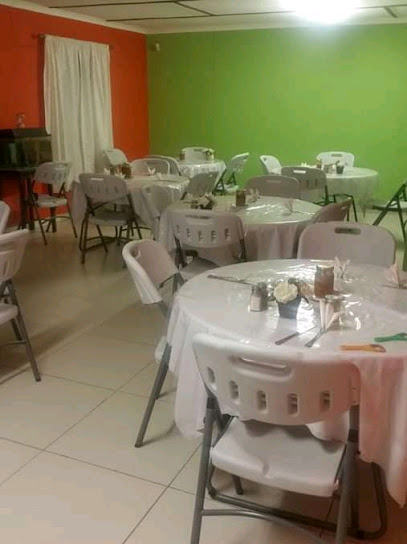
Culture Café
Experience authentic Namibian cuisine at Culture Café in Rundu - where local flavors meet warm hospitality.
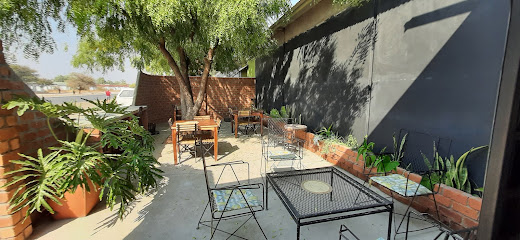
Rundu, Namibia
Experience authentic Mexican cuisine in Rundu, Namibia – where vibrant flavors meet cultural richness.
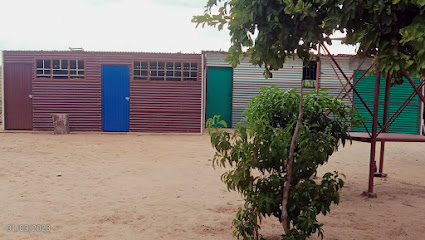
ROM Café
Discover culinary excellence at ROM Café in Rundu, where delicious meals meet a cozy atmosphere for an unforgettable dining experience.
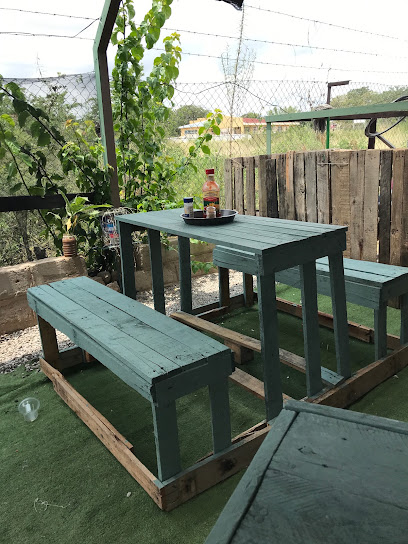
Trust Me Restaurant
Discover the culinary delights of Trust Me Restaurant in Rundu, where local flavors meet international cuisine in a warm and welcoming setting.
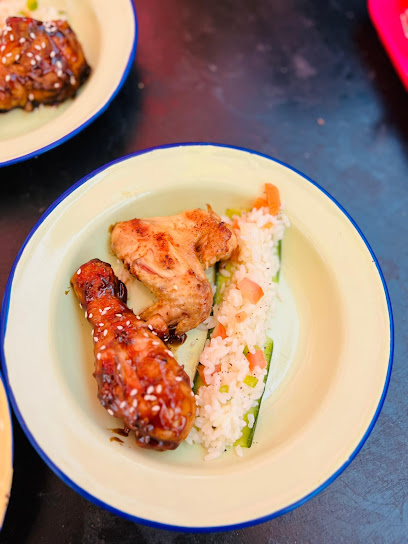
Fantacia
Discover Fantacia: A premier grill destination in Rundu offering mouthwatering flavors and an inviting atmosphere perfect for all occasions.

Markets, malls and hidden boutiques
Rundu Shopping Mall
Explore Rundu Shopping Mall, where local culture meets modern shopping in a vibrant atmosphere that captivates every visitor.
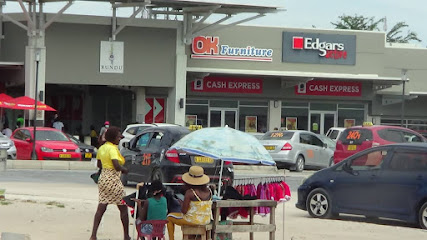
KAVANGO OK FOODS SUPERMARKET
Explore local flavors and vibrant culture at Kavango Ok Foods Supermarket in Rundu, your gateway to Namibian culinary delights.
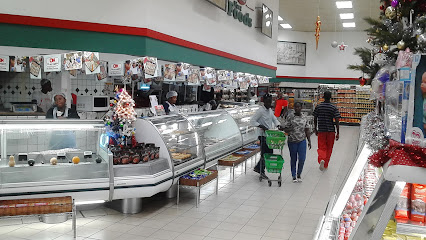
Pick n Pay
Experience the local flavors and convenience at Pick n Pay, your go-to grocery store in Rundu's Mangetti Mall.
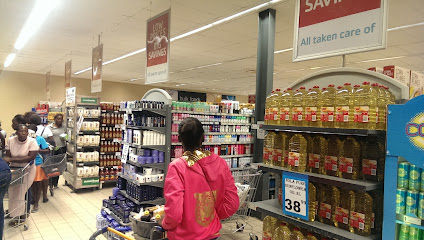
Shoprite Rundu
Discover a vibrant shopping experience at Shoprite Rundu, where quality meets affordability in the heart of Namibia.
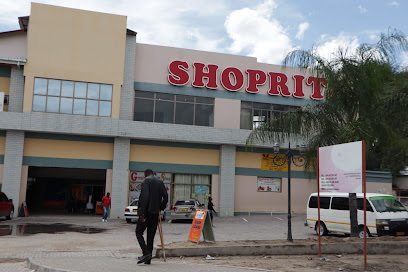
WB Supermarkets Rundu Hyper
Discover Rundu's best supermarket for fresh produce, local products, and unbeatable prices at WB Supermarkets Rundu Hyper.
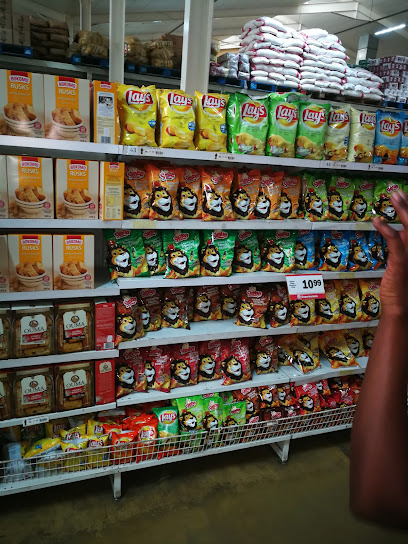
Oceano Woermann Brock Super Stores
Discover the flavors of Rundu at Oceano Woermann Brock Super Stores, a bakery offering a delightful array of local and international baked goods.
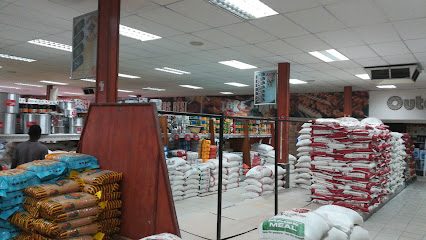
Rundu Cash And Carry
Experience the vibrant shopping scene at Rundu Cash And Carry in Namibia, where local culture meets great deals and diverse products.
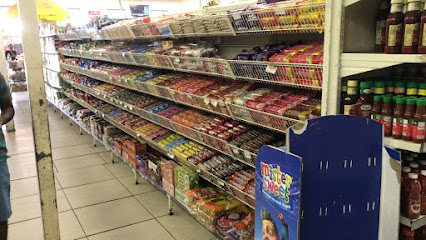
Protea, Kehemu
Explore Protea in Rundu: A vibrant outlet mall offering a unique shopping experience with local treasures and cultural charm.
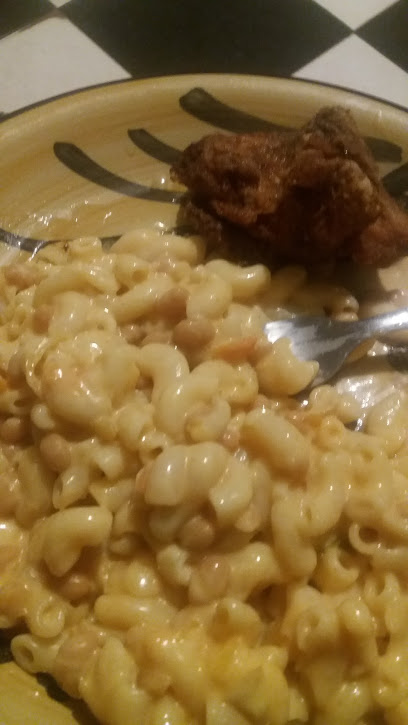
Jet Rundu
Discover stylish clothing and unbeatable deals at Jet Rundu, Namibia's premier outlet mall for fashion enthusiasts and savvy shoppers.
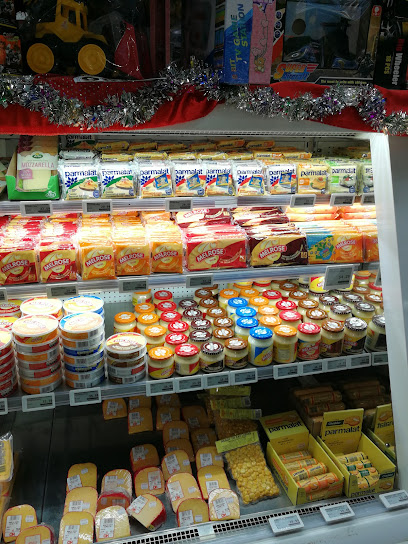
The Factory Shop
Discover a vibrant shopping experience at The Factory Shop in Rundu's Mangetti Mall, where local culture and modern retail converge.
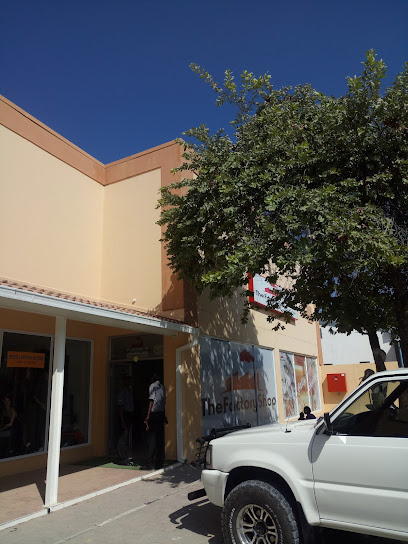
Paradise Mini Market
Explore the flavors of Rundu at Paradise Mini Market, your go-to spot for fresh bakery goods, quality meats, and local grocery treasures.
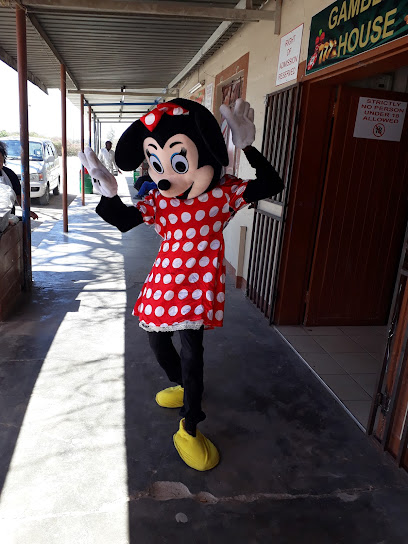
Mr Price / MRP
Explore the stylish and affordable fashion offerings at Mr Price, a must-visit clothing store in Rundu, perfect for trendy shoppers.
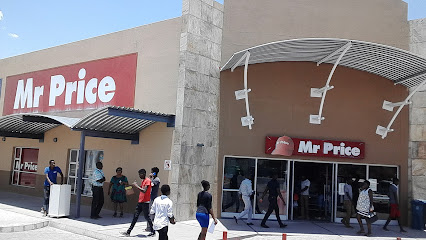
Friendly Retail&w/Sale
Discover the vibrant shopping experience at Friendly Retail & Sale in Rundu, offering fresh produce, local flavors, and friendly service.
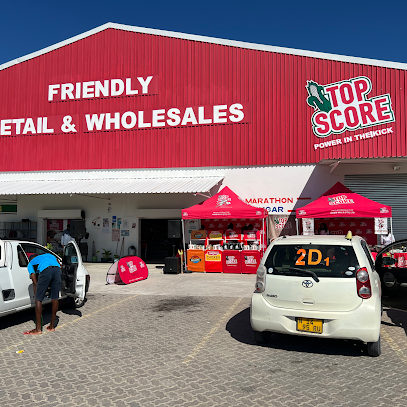
Galaxy Shopping Centre
Discover the Galaxy Shopping Centre: A vibrant hub of shopping, dining, and entertainment in Rundu, perfect for tourists seeking local culture.

Rundu
Explore Rundu: Experience the vibrant culture and convenience of Namibia's charming commercial hub.
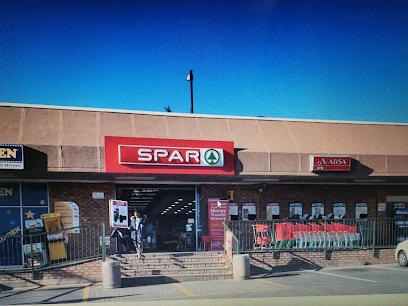
Essential bars & hidden hideouts
New World GAG Pub
Discover the lively atmosphere and local flavors at New World GAG Pub, Rundu's premier destination for unforgettable nights out.
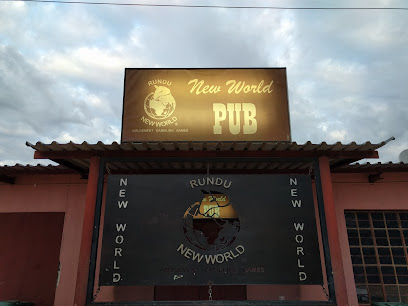
VIP Bar
Discover the vibrant nightlife of Rundu at VIP Bar, where locals and travelers unite over drinks and unforgettable experiences.
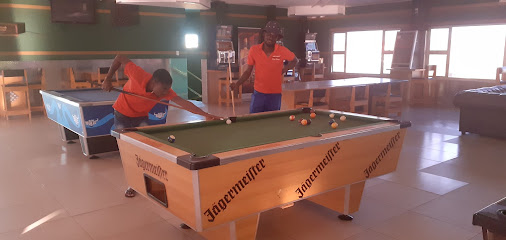
Supersport Pub
Experience the lively atmosphere of Supersport Pub in Rundu, where sports, good food, and great company come together.
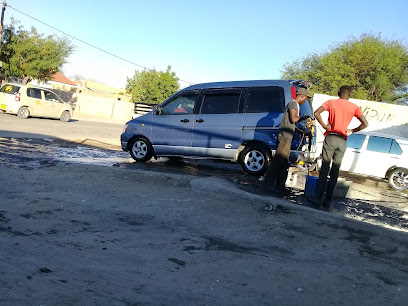
Nitecall Entertainment Rundu
Discover Rundu's nightlife at Nitecall Entertainment, a vibrant bar offering local drinks, music, and a lively atmosphere for an unforgettable experience.
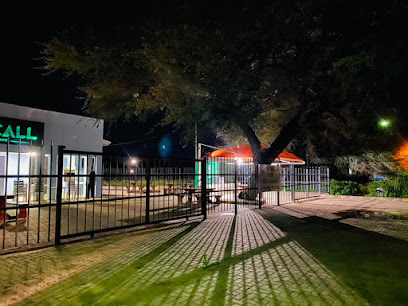
Kakove Pub
Discover the vibrant nightlife of Rundu at Kakove Pub, a local favorite for drinks, music, and good company in a cozy setting.
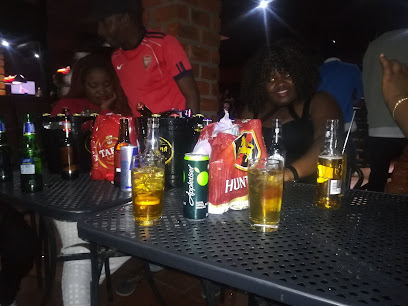
Moonrise Bar And Restaurant
Discover the lively Moonrise Bar and Restaurant in Rundu for a memorable evening of drinks, local cuisine, and vibrant atmosphere under the Namibian sky.
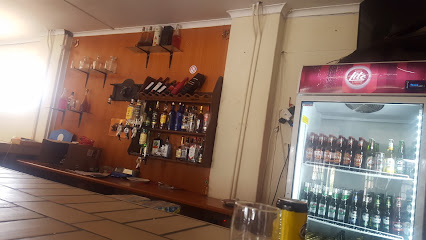
Adina Villa Bar
Experience the lively atmosphere of Adina Villa Bar in Rundu, where refreshing drinks and local culture meet for an unforgettable night out.
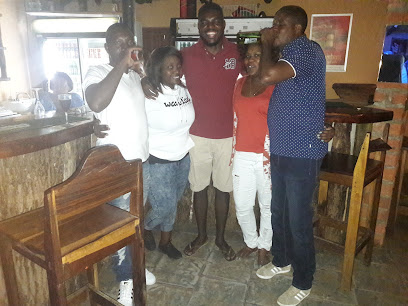
Sihetekera Bar
Experience the vibrant atmosphere of Sihetekera Bar in Rundu, where locals and travelers gather for memorable evenings filled with good drinks and lively conversations.
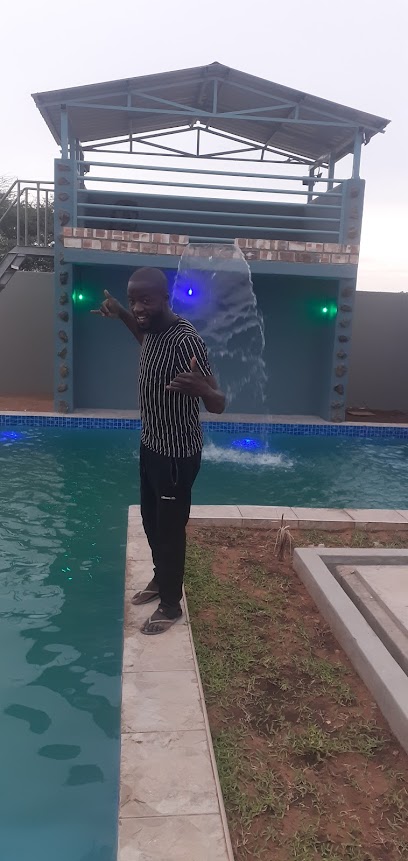
Alikerels Pub & Grill
Discover Alikerels Pub & Grill, a lively bar in Rundu offering delicious local cuisine, refreshing drinks, and a vibrant atmosphere perfect for tourists.
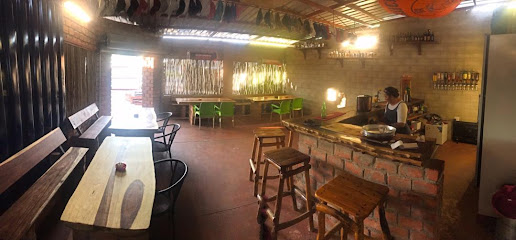
Cocktail Westside Bar
Experience the vibrant nightlife of Rundu at Cocktail Westside Bar, the perfect spot for refreshing cocktails and local ambiance.

Uncle Pendas Pub
Experience the lively ambiance and local culture at Uncle Pendas Pub in Rundu, where good drinks and great company await.
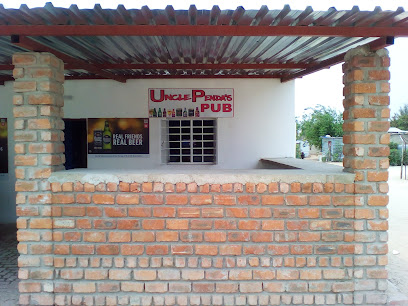
Casamia
Discover the lively ambiance of Casamia, a must-visit bar in Rundu, where local culture meets vibrant nightlife for an unforgettable experience.

The Dog Is Hot
Experience the vibrant nightlife of Rundu at The Dog Is Hot, where locals and travelers gather for refreshing drinks and lively moments.

Cocktail bar
Discover the vibrant cocktail scene in Rundu, where innovative drinks and a lively atmosphere await you.

Local Phrases
-
- HelloMoro
[Moh-roh] - GoodbyeTseke
[Tseh-keh] - YesEe
[Eh] - NoAowa
[Ah-oh-wah] - Please/You're welcomeNawa
[Nah-wah] - Thank youNdapandula
[N-dah-pan-doo-lah] - Excuse me/SorryTate
[Tah-teh] - How are you?Ondi paka?
[Ohn-dee pah-kah] - Fine. And you?Muhona. Iwe?
[Moo-hoh-nah. Ee-weh] - Do you speak English?Oi ta tjiVambo va Englesa?
[Oy tah tchee-vam-boh vah Eng-leh-sah] - I don't understandAha ndi kEla
[Ah-hah n-dee keh-lah]
- HelloMoro
-
- I'd like to see the menu, pleaseNda kulula menu, nawa
[N-dah koo-loo-lah meh-noo, nah-wah] - I don't eat meatAha ndi la kOma okukuma
[Ah-hah n-dee lah koh-mah oh-koo-koo-mah] - Cheers!Teya!
[Teh-yah] - I would like to pay, pleaseNda kEla ongolola, nawa
[N-dah keh-lah ohn-go-loh-lah, nah-wah]
- I'd like to see the menu, pleaseNda kulula menu, nawa
-
- Help!Tulonga!
[Too-lon-gah] - Go away!Tateka!
[Tah-teh-kah] - Call the Police!Taya oshili omutwa
[Tah-yah oh-shee-lee oh-moot-wah] - Call a doctor!Taya oshili omukondo
[Tah-yah oh-shee-lee oh-moo-kohn-doh] - I'm lostNda kEla onga tula
[N-dah keh-lah ohn-gah too-lah] - I'm illNda kEla onga shi
[N-dah keh-lah ohn-gah shee]
- Help!Tulonga!
-
- I'd like to buy...Nda kEla ongEma...
[N-dah keh-lah ohn-geh-mah] - I'm just lookingNda kEla olyo
[N-dah keh-lah oh-lyoh] - How much is it?Aya tate na?
[Ah-yah tah-teh nah] - That's too expensiveOka kongelela
[Oh-kah kong-geh-leh-lah] - Can you lower the price?Oka Ete konkatula
[Oh-kah eh-teh kohn-kah-too-lah]
- I'd like to buy...Nda kEla ongEma...
-
- What time is it?Nawa oshitutu shi?
[Nah-wah oh-shee-too-too shee] - It's one o'clockShilongo sha kandu
[Shee-lohng-goh shah kahn-doo] - Half past (10)Efo olya (10)
[Eh-foh ohl-yah (10)] - MorningUulondo
[Ooh-lohn-doh] - AfternoonTeteni
[Teh-teh-nee] - EveningOmandje
[Oh-mahn-jeh] - YesterdayOndjuu
[Ohn-joo] - TodayOndje
[Ohn-jeh] - TomorrowOkalongo
[Oh-kah-lohng-goh] - 1Mo
[Moh] - 2Evi
[Eh-vee] - 3Eta
[Eh-tah] - 4Nye
[N-yeh] - 5Tano
[Tah-noh] - 6Noma
[Noh-mah] - 7Kanana
[Kah-nah-nah] - 8Tatana
[Tah-tah-nah] - 9Tatoma
[Tah-toh-mah] - 10Tatono
[Tah-toh-noh]
- What time is it?Nawa oshitutu shi?
-
- Where's a/the...?Konge?
[Kong-geh] - What's the address?Okuti konge?
[Oh-koo-tee kong-geh] - Can you show me (on the map)?Oka Ete konge (omutanga)?
[Oh-kah eh-teh kong-geh (oh-moo-tahn-gah)] - When's the next (bus)?Ngoka oya ongwa (omutoto)?
[N-goh-kah oh-yah ohn-gwah (oh-moo-toh-toh)] - A ticket (to ....)Omutoto (etala ....)
[Oh-moo-toh-toh (eh-tah-lah)]
- Where's a/the...?Konge?
History of Rundu
-
Rundu, located on the banks of the Kavango River, has been a place of settlement for the Kavango people for centuries. The river provided a natural resource for fishing, agriculture, and transportation, fostering the growth of small communities in the region. The Kavango people have a rich cultural heritage that includes traditional crafts, music, and dance, which remain integral to the community's identity even today.
-
During the late 19th and early 20th centuries, Namibia was colonized by Germany. Although the focus of German colonization was primarily in the central and southern parts of Namibia, the Kavango region, including Rundu, experienced the impact of colonial rule. The establishment of trading posts and missionary stations brought about significant changes to the local way of life. German missionaries played a crucial role in introducing Western education and Christianity to the area.
-
After World War I, Namibia came under South African administration under the League of Nations mandate. The Kavango region, including Rundu, saw further development during this period. Infrastructure such as roads, schools, and healthcare facilities were established, although predominantly to serve the colonial administration and settlers. The region also became a strategic location during the South African Border War, which had lasting effects on the local population.
-
Namibia gained independence from South Africa on March 21, 1990. Since then, Rundu has experienced significant growth and development. As the administrative capital of the Kavango East region, Rundu has become a hub for commerce, education, and healthcare. Efforts to improve infrastructure, such as the construction of the Rundu Airport and the expansion of the road network, have facilitated greater connectivity and economic opportunities.
-
Rundu is known for its vibrant cultural festivals that celebrate the heritage of the Kavango people. One of the most notable events is the annual Kavango Cultural Festival, which showcases traditional dances, music, crafts, and cuisine. These festivals not only preserve and promote the rich cultural traditions of the region but also attract visitors from across Namibia and beyond, contributing to the local economy.
-
Today, Rundu is a bustling town with a diverse population and a thriving economy. The town's strategic location near the Angolan border has made it a center for cross-border trade. Educational institutions, such as the University of Namibia's Rundu Campus, play a vital role in shaping the future of the region. Rundu continues to balance development with the preservation of its cultural heritage, making it a unique destination for travelers seeking both history and modernity.
Rundu Essentials
-
Rundu is located in the northeastern part of Namibia, near the border with Angola. The nearest major airport is Hosea Kutako International Airport in Windhoek, the capital of Namibia. From Windhoek, you can take a domestic flight to Rundu Airport or opt for a bus or car rental to make the approximately 700-kilometer journey, which takes around 8 to 10 hours by road.
-
Once in Rundu, you can get around by local taxis, which are relatively affordable. Car rentals are also available and can be a convenient way to explore the surrounding areas at your own pace. There are no extensive public transport systems within Rundu, so taxis or private vehicles are the best options for getting around.
-
The official currency in Namibia is the Namibian Dollar (NAD), which is pegged to the South African Rand (ZAR). Credit cards are accepted in most hotels, restaurants, and larger shops, but it is advisable to carry cash for smaller establishments and markets. ATMs are available in Rundu, but be cautious and use machines located in well-lit and secure areas.
-
Rundu is generally safe for tourists, but it is advisable to take standard precautions. Avoid walking alone at night in unfamiliar areas, and keep an eye on your belongings in crowded places. Specific areas with higher crime rates include the informal settlements on the outskirts of the town, where petty crimes like pickpocketing and theft are more common. Always stay vigilant and aware of your surroundings.
-
In case of emergency, dial 10111 for police assistance and 10177 for medical emergencies. The local hospital in Rundu provides basic medical care, but for more severe cases, you may need to be transferred to a larger city. It is highly recommended to have travel insurance that covers medical emergencies. Pharmacies are available in the town for minor health issues and over-the-counter medications.
-
Fashion: Do dress modestly, especially in rural areas. Avoid wearing flashy jewelry or revealing clothing. Religion: Do be respectful of local customs and traditions, particularly in religious sites. Public Transport: Do negotiate the fare with taxi drivers before starting your journey. Don't assume that all taxis have meters. Greetings: Do greet people with a handshake and a smile. It's customary to address elders with respect. Eating & Drinking: Do try local dishes and be open to new culinary experiences. Don't refuse food or drink offerings, as it is considered impolite.
-
To experience Rundu like a local, visit the vibrant open-air markets where you can buy fresh produce and traditional crafts. Engage with locals, who are often friendly and willing to share stories about their culture and daily life. Don't miss a visit to the Kavango River, where you can enjoy a boat ride or simply relax by the water. For a unique cultural experience, attend a traditional dance performance or community event.
Trending Landmark in Rundu
-
Kavango River Lodge
-
Hakusembe River Lodge, Gondwana Collection Namibia
-
Kaisosi River Lodge
-
Tambuti Lodge
-
Hotel Ngandu Rundu
-
New World GAG Pub
-
Nkwazi Lodge And Camping Site
-
VIP Bar
-
Niilo's Guest House
-
Mukuku Rest Camp
-
Samsitu Campsite
-
Camp Hogo (Kavango)
-
Werah Hub Space
-
OMashare Hotel
-
Shoombe frans guesthouse Rundu
Nearby Cities to Rundu
-
Things To Do in Tsumeb
-
Things To Do in Ongwediva
-
Things To Do in Oshakati
-
Things To Do in Otjiwarongo
-
Things To Do in Etosha Village
-
Things To Do in Maun
-
Things To Do in Outjo
-
Things To Do in Katima Mulilo
-
Things To Do in Okahandja
-
Things To Do in Omaruru
-
Things To Do in Kasane
-
Things To Do in Windhoek
-
Things To Do in Karibib
-
Things To Do in Usakos
-
Things To Do in Victoria Falls





